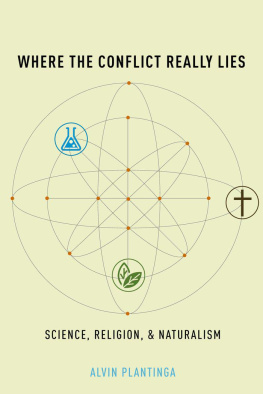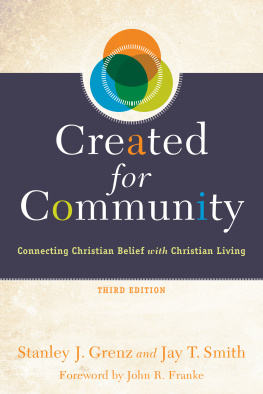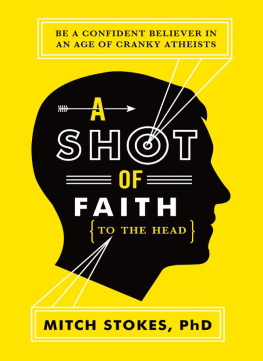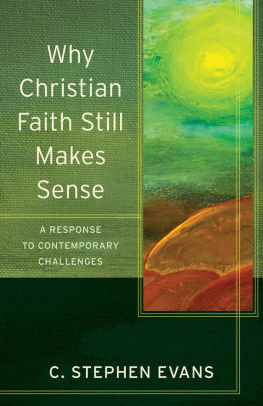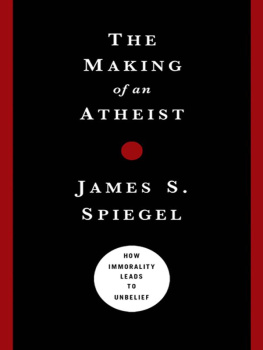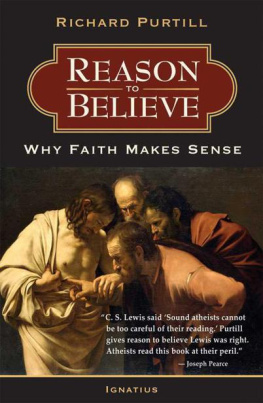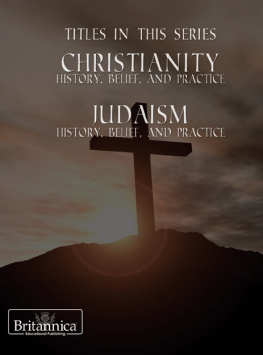Alvin Plantingas magisterial Warranted Christian Belief is one of the most important works on the epistemology of religious belief within the last century. It is exciting to see the core ideas of that great work presented here in a more succinct and accessible format. Knowledge and Christian Belief is a pleasure to read and will serve as an excellent and engaging introduction to Plantingas most influential ideas about the rationality of religious belief.
Michael Rea
University of Notre Dame
A very clear, easy-to-understand, and challenging presentation of the main steps of Plantingas argument in his magnum opus Warranted Christian Belief. Using the tools of modern epistemology, Plantinga defends a classical position that Christian belief does not need to be supported by any arguments from generally agreed premises in order to be fully rational, and that that belief cannot be shown to be false by any such arguments.
Richard Swinburne
University of Oxford
Knowledge and Christian Belief
Alvin Plantinga
William B. Eerdmans Publishing Company
Grand Rapids, Michigan / Cambridge, U.K.
2015 Alvin Plantinga
All rights reserved
Published 2015 by
Wm. B. Eerdmans Publishing Co.
2140 Oak Industrial Drive N.E., Grand Rapids, Michigan 49505 /
P.O. Box 163, Cambridge CB3 9PU U.K.
Printed in the United States of America
Library of Congress Cataloging-in-Publication Data
Plantinga, Alvin.
Knowledge and Christian belief / Alvin Plantinga.
pages cm
ISBN 978-0-8028-7204-3 (pbk.: alk. paper)
eISBN 978-1-4674-4320-3 (ePub)
eISBN 978-1-4674-4280-0 (Kindle)
1. Faith and reason Christianity. 2. Apologetics.
3. Christianity Philosophy. I. Title.
BT50.P535 2015
230.01 dc23
2014044388
www.eerdmans.com
Contents
Preface
My book Warranted Christian Belie f came out more than a dozen years ago. I still endorse nearly everything I wrote there; but some have told me the book is too long and in places too technical. Im afraid I have to agree, and I would like to put things right. The result of my trying to put things right is the present book, Knowledge and Christian Belief. It is a shorter and (I hope) more user-friendly version of WCB. There are some changes of emphasis and a few changes of other sorts; but for the most part I follow the contours of WCB, adding a bit here and there, and of course subtracting a great deal of the detail. Ive deleted the more difficult portions, but otherwise have used the words of WCB as much as possible. My hope is that the result will present the same ideas as the original, but in a briefer and more accessible fashion.
The chief topic to which the book is addressed is the question of the rationality, or sensibleness, or justification, of Christian belief. Of course this has been an important question for a good long time, going all the way back to the beginnings of Christianity, and becoming considerably more insistent since the eighteenth-century Enlightenment. This question has become even more important recently, with the so-called New Atheists bursting upon the scene. The central members of this outfit are the dreaded Four Horsemen not the Four Horsemen of the Apocalypse, nor the legendary four horsemen of Notre Dame, but the four horsemen of Atheism: Richard Dawkins, Daniel Dennett, Sam Harris, and (the late) Christopher Hitchens. Their aim, it seems, is to run roughshod over religious belief.
Although the New Atheists are certainly inferior, philosophically speaking, to the old atheists (e.g., Bertrand Russell, C. D. Broad, and J. L. Mackie), they do seem to make a good deal more noise. One might say they are more style than substance, except that there isnt much by way of style either; their preferred style seems to be less that of serious scholarly work than of pamphleteering and furious denunciation. They blame everything short of bad weather and tooth decay on religion. They conveniently ignore the fact that modern atheist ideologies Nazism and Marxism, for example were responsible, in the twentieth century alone, for far more suffering and death than religion in its entire history. Their style emphasizes venom, vitriol, vituperation, ridicule, insult, and naked contempt; whats missing, however, is cogent argument.
Nevertheless, some of their questions need answers. Among their claims is that religious belief in general and Christian belief in particular is irrational, cant sensibly be held, and must be rejected by anyone who is well educated and thinking straight. Thus Dawkins: the irrationality of religion is a by-product of a particular built-in irrationality mechanism in the brain. With respect to the thought that faith is or can be a source of knowledge independent of reason, Dennett is not encouraging:
if you think that this common but unspoken understanding about faith is anything better than socially useful obfuscation to avoid mutual embarrassment and loss of face, then either you have seen much more deeply into this issue that any philosopher has (for none has come up with a good defense for this) or you are kidding yourself.
But how exactly are we to understand this complaint? In just what way is Christian belief irrational or intellectually disreputable? Its not easy seeing precisely what this claim of irrationality amounts to, and part of my aim is to get clearer about that. Once weve seen just what this claim is, Ill go on to argue (1) that these criticisms, these claims that religious belief is irrational, are completely inconclusive; (2) that belief in God, and indeed belief in the whole panoply of the Christian faith, can be not only perfectly rational, sensible, and justified, but in fact a case of knowledge; and (3) that these objections to the rationality or sensibleness of Christian belief, if they are to have any cogency, must be based on the assumption that Christian belief is false. If am right, those who say something like Well, I dont know whether Christian belief is true or false who could know a thing like that? but I do know that Christian belief is irrational, or unjustified, or not sensible, or not worthy of a thinking person are mistaken.
A preliminary issue: some people seem to hold, oddly enough, that there really isnt any such thing as Christian belief and there really isnt any such thing as belief in God. The logical positivists, for example, claimed that sentences like God loves us or God created the world are vacuous and without content because they cant be empirically verified. Others claim that our concepts dont apply to God, because he is so far above us, or because God is ultimate reality, and our concepts dont apply to ultimate reality. But if our concepts dont apply to God, then we dont have any beliefs about God.
So our initial question, addressed in Chapter One, is thus: Is there such a thing as belief in God? Is there such a thing as Christian belief? If not, of course, we neednt enter the question whether Christian belief is rational or reasonable. Ill begin by considering this Kantian-inspired thought, and will conclude, as you might have guessed (if only from the title of this book), that indeed there is such a thing as Christian belief.
Given that Christians do indeed believe the things it looks like they believe, Ill go on in Chapter Two to try to get a better fix on the claim that Christian belief is in some way sadly lacking that it is irrational, or unjustified, or childish, or not worthy of contemporary people (people with our magnificent intellectual attainments), or in some other way intellectually lacking. What, exactly, is supposed to be the problem? There are several possibilities: one is that Christian belief is unjustified, where justification has to do with intellectual duty and obligation. This thought goes back to the classical foundationalism of Ren Descartes (1596-1650) and John Locke (1632-1704). Ill argue that it is easy to see that Christians arent (or arent necessarily) violating any intellectual duties in holding their beliefs. Another thought is that Christian belief, while it doesnt violate intellectual duties or obligations, is nonetheless irrational in some other recognizable sense. Ill argue that this is also untrue.
Next page

